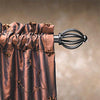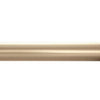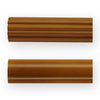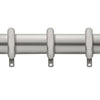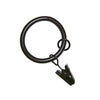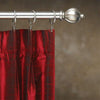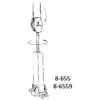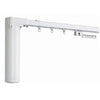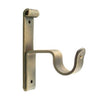How do I choose between curtain rods or curtain tracks?
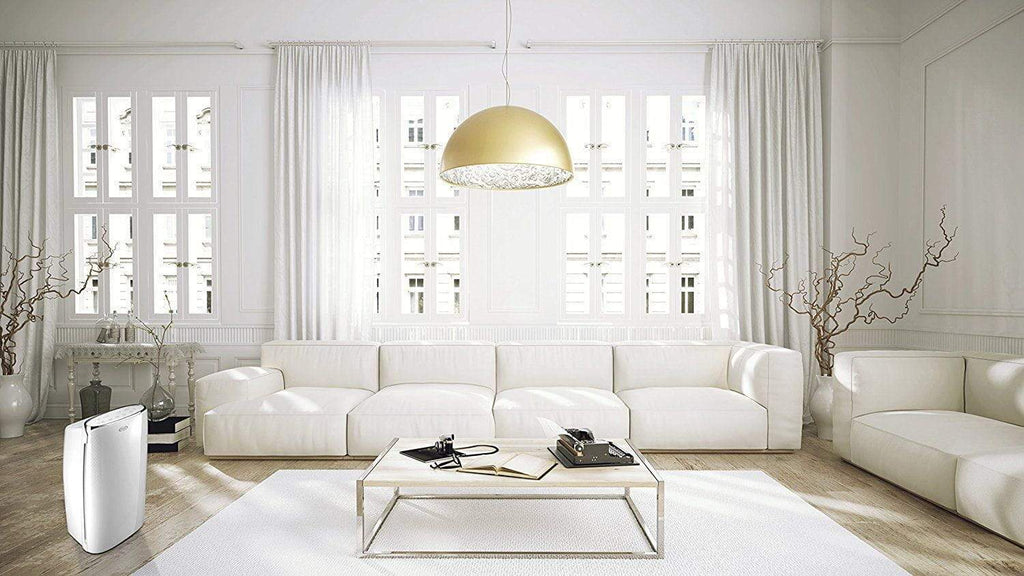
Do you choose curtain rods or tracks? If this is the dilemma you’re facing, you’re not alone! We’ve had to answer this question many times. There is such a large variety of tracks and curtain rods available that it can be challenging to figure out what will work best for your home. The specific area where you want to install the curtains will largely dictate what you can and cannot use.
Let’s first have a look at the difference between tracks and curtain rods:

source: Continental Window Fashions
Curtain rods have the dual function of holding up curtains and acting as a decorative feature. They are clearly visible and are made from a variety of material, like metal, plastic, and wood. The curtain rods (or poles) are finished on the ends by finials and held up by supporting brackets that are fixed to a wall. Curtains, like tab tops, go straight onto the curtain rod while other styles are attached to curtain rings that hang from the curtain rod.
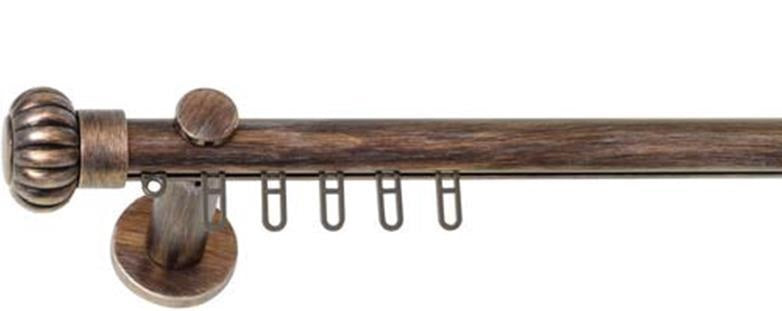
source: Continental Window Fashions
Curtain tracks (also known as traverse rods) are discreet and designed to blend with a wall or to fit behind decorative elements like a pelmet or valance. The internal tracking mechanism is hidden from view and can be uncorded, corded or motorized. Curtain tracks are made from plastic or metal and can be customized and bent to fit odd window shapes. Curtain track types include a rod track (that looks like a curtain rod), (fixed above a window) and (fitted inside the top of a window frame).
Now that we know exactly what the characteristics of each hardware item are, let’s see where they are most suited.
1. Curtain type and style
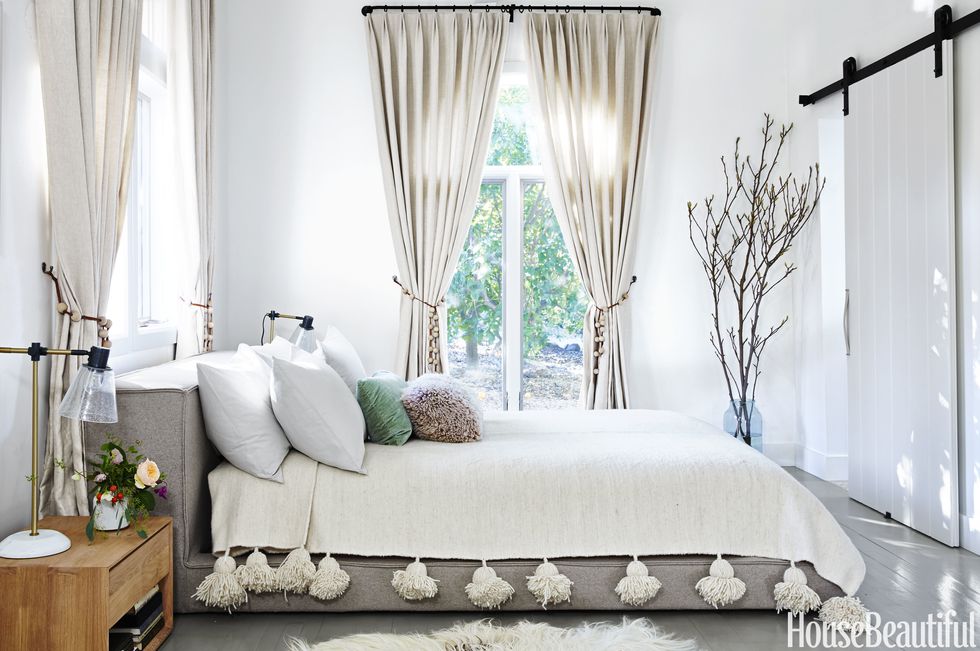
source: House Beautiful
If you have specific curtains in mind, their style might dictate which type of curtain hardware you can use. Tab top and eyelet or grommet curtains can only be paired with curtain rods, but other curtain styles can go on either curtain rods by using curtain rings or grommet, or curtain tracks.
Choose curtain rods when you want to add another decorative element to the window dressing and room as a whole. However, if your curtains have an elaborate design or you simply want them to stand out, consider a simple face-fix track or a hidden top-face track to keep the emphasis on the curtains.
2. Curtain Weight

source: Five Elements
Light curtains can go on either curtain track or curtain rod, but when your curtains become very heavy or long, it is worthwhile to consider putting them on a with curtain pulls, or on motorized tracks. Pulleys and motorized tracks are also very useful for those tall windows and to avoid the curtains from getting jammed on the track.
3. Window Size and Shape
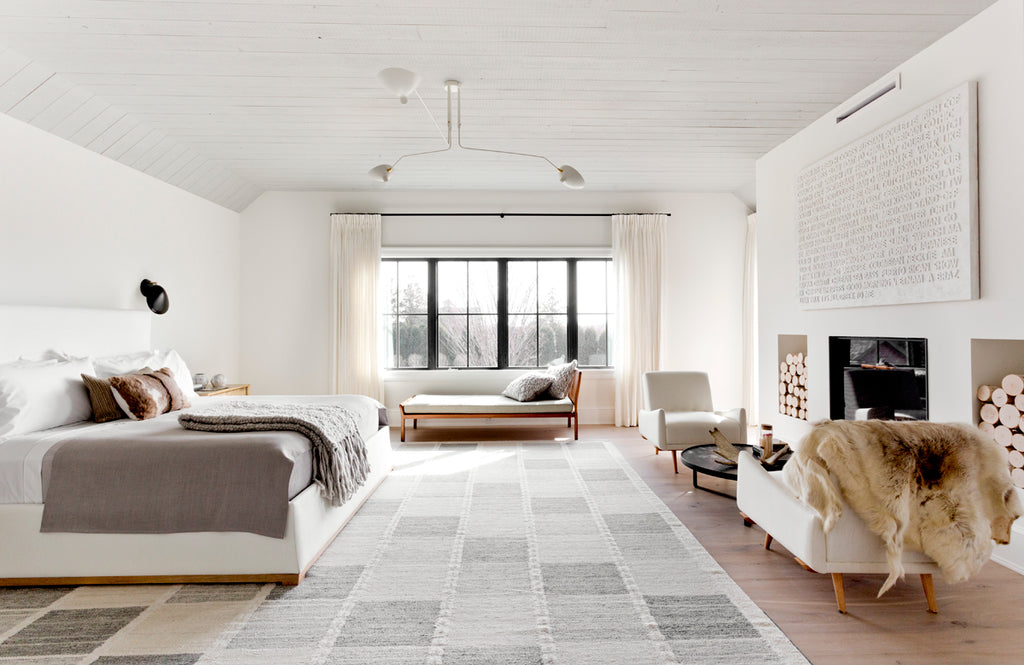
source: Lark & Linen
The size and shape of your windows are also a deciding factor in the type of curtain hardware you can use. Curtain tracks are better suited to large, tall windows because they have pulley systems and motorized options that assist in the opening and closing of overwhelmingly large curtains.
Bent curtain tracks are an easy solution to curved windows and bay windows and can sit above or inside the top windowsill. Curtain rods can however also be customized to fit above the window for a whimsical aesthetic.
4. Location of the installation
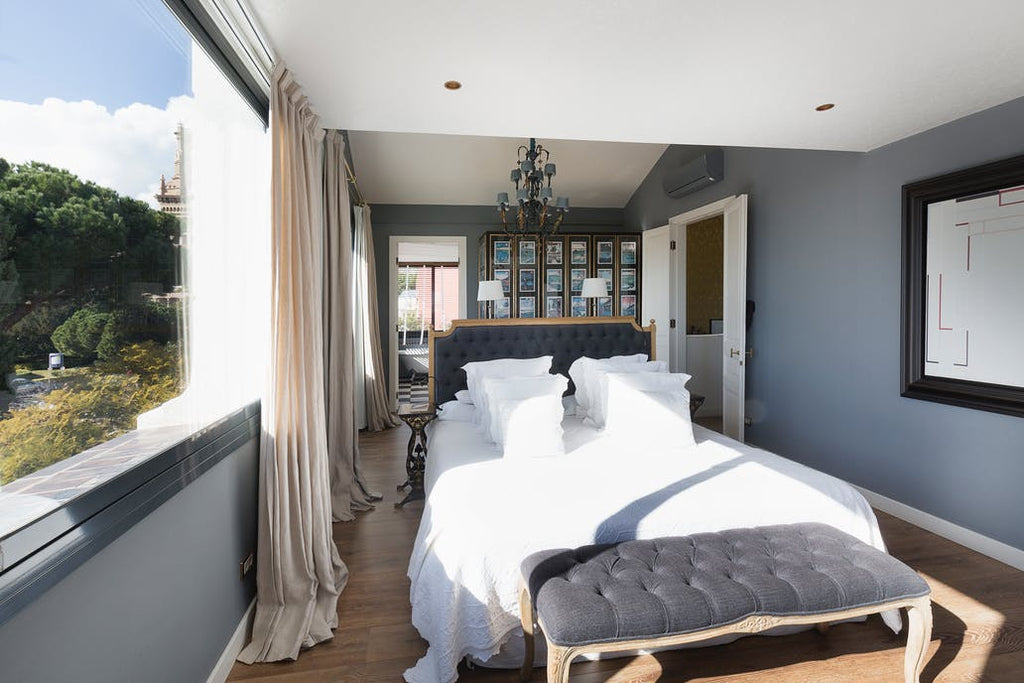
source: Apartment Therapy
Curtain tracks, in combination with blackout curtains, are ideal for bedrooms because tracks can be installed inside the window recess, which allows the curtains to block light from the whole window completely.
5. Span of the installation

source: Zrobym
Curtain rods will require additional supporting brackets over longer distances, which may obstruct and interfere with smooth operation of the curtain. are very convenient over longer distances since they are designed in such a way that the supporting brackets won’t hinder curtain movement.
Tension rods, or spring rods, are a lovely option for small window frames because they do not need other curtain hardware. These rods expand to fit within a window frame and can hold a light-weight curtain.

